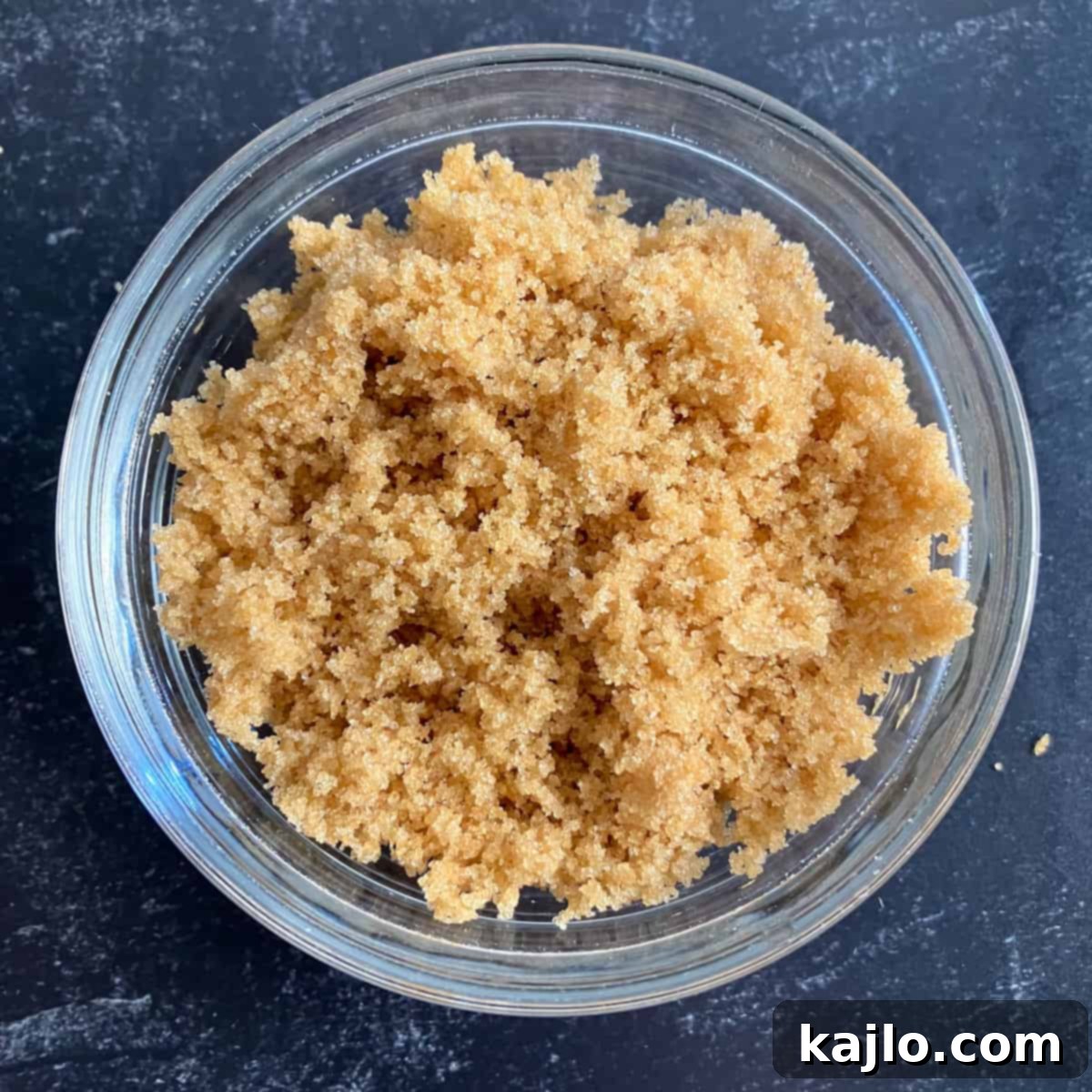Your Ultimate Guide to Coconut Sugar Substitutes: Sweet Alternatives for Every Need
Are you searching for the perfect coconut sugar substitute for your baking adventures, a keto-friendly alternative, or simply a healthier option? Look no further! This comprehensive guide will equip you with the knowledge to easily replace coconut sugar in any recipe. Whether you’re aiming to save money, avoid a trip to the health food store, or meet specific dietary requirements, you’ll discover a wealth of fantastic coconut sugar alternatives, complete with their ideal substitution ratios.
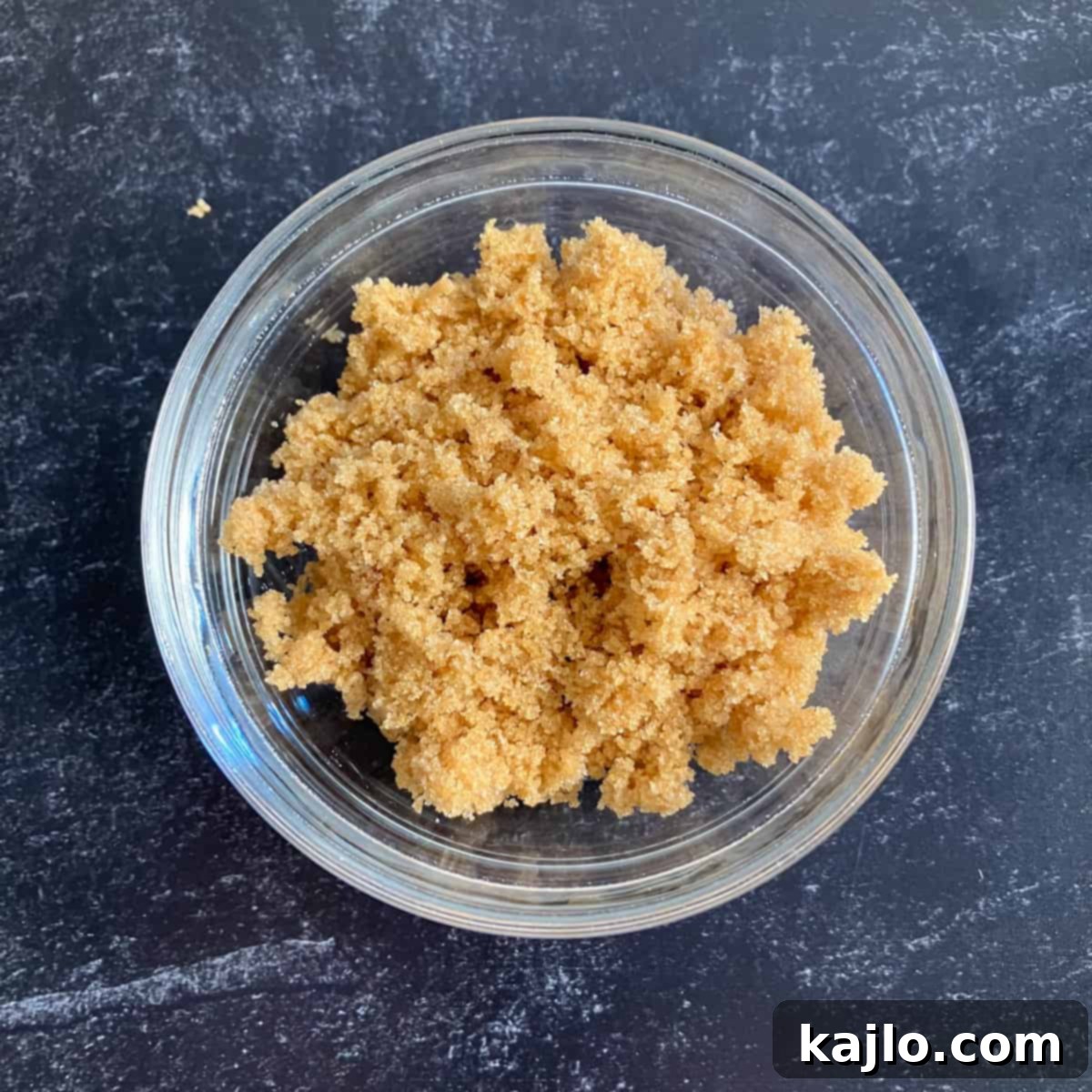
Coconut sugar has become a popular ingredient, often lauded for its slightly lower glycemic index and appealing caramel notes. However, its higher price point and limited availability in conventional grocery stores can be a hindrance for many home cooks and bakers. The good news is that you have a multitude of choices when it comes to finding a reliable coconut sugar replacement. From common pantry staples to specialty dietary sweeteners, this article will help you navigate your options with ease. You might even find that some substitutes enhance your recipes in unexpected ways, making a coconut sugar substitution virtually undetectable!
Understanding Coconut Sugar: What It Is and Why Seek Alternatives
Before diving into substitutes, it’s helpful to understand what coconut sugar is and why you might want to replace it. Also known as coconut palm sugar, this sweetener is derived from the sap of coconut palm flowers. The sap is collected, then heated and evaporated until much of the water content is gone, leaving behind granulated sugar crystals or a thick nectar. This process gives coconut sugar its distinctive light brown color and subtle caramel flavor, often compared to brown sugar.
Despite popular belief, coconut sugar is not a low-calorie or low-carb food. Nutritionally, it’s quite similar to regular table sugar, containing roughly the same amount of carbohydrates and calories per serving. It is still considered an “added sugar” by health organizations. While some sources highlight its slightly lower glycemic index (around 54 compared to white sugar’s 60), this difference is generally not significant enough for it to be considered a “healthy” sugar in the context of blood sugar management. Therefore, the primary reasons for seeking an alternative often revolve around cost, accessibility, or specific dietary needs like low-carb or whole-food preferences, rather than a significant health advantage over other sugars.
How Coconut Sugar is Made
The traditional method of making coconut sugar involves several steps:
- Tapping the Sap: Farmers climb coconut palm trees and make an incision on the flower bud stems to release the liquid sap.
- Collecting the Sap: The sap is collected in bamboo containers over several hours.
- Heating and Evaporation: The collected sap is transferred to large woks and heated over a moderate flame. As the water evaporates, the sap thickens into a syrup.
- Crystallization: With continued heating and stirring, the syrup eventually crystallizes into granules, which are then dried and packaged as coconut sugar.
The caramelization that occurs during the heating process is what imparts coconut sugar its unique flavor and brown hue, distinguishing it from highly refined white sugar.
🤔 21 Best Coconut Sugar Substitutes for Every Occasion
Here’s an extensive list of the top alternatives you can use in place of coconut sugar, detailed with their flavor profiles, ideal uses, and critical substitution ratios. This list includes both granulated and liquid sweeteners, as well as options for various dietary needs.
- Light Brown Sugar
- Regular Sugar (Granulated White Table Sugar)
- Raw Honey
- Maple Syrup
- Date Syrup
- Agave Nectar
- Brown Rice Syrup
- Coconut Nectar
- Panela (Piloncillo)
- Evaporated Sugar Cane Juice
- Date Paste (Blended Medjool Dates)
- Monk Fruit Sweetener
- Xylitol
- Allulose
- Tagatose
- Erythritol
- Sucanat
- Swerve
- Stevia
- Turbinado Sugar (Demerara Sugar)
- Muscovado
Now, let’s explore each of these options in more detail, along with their ideal substitution ratios.
Brown Sugar
Brown sugar owes its distinctive color and moist texture to molasses. It’s produced either by not fully refining sugar crystals or by reintroducing molasses to white sugar. Light brown sugar is often hailed as the best all-around substitute for coconut sugar. It’s widely available, highly affordable, and its mild caramel flavor closely mimics that of coconut sugar. Furthermore, its moist texture works beautifully in most recipes, especially baked goods.
Substitution Ratio: 1 cup light brown sugar for 1 cup coconut sugar (1:1 ratio).
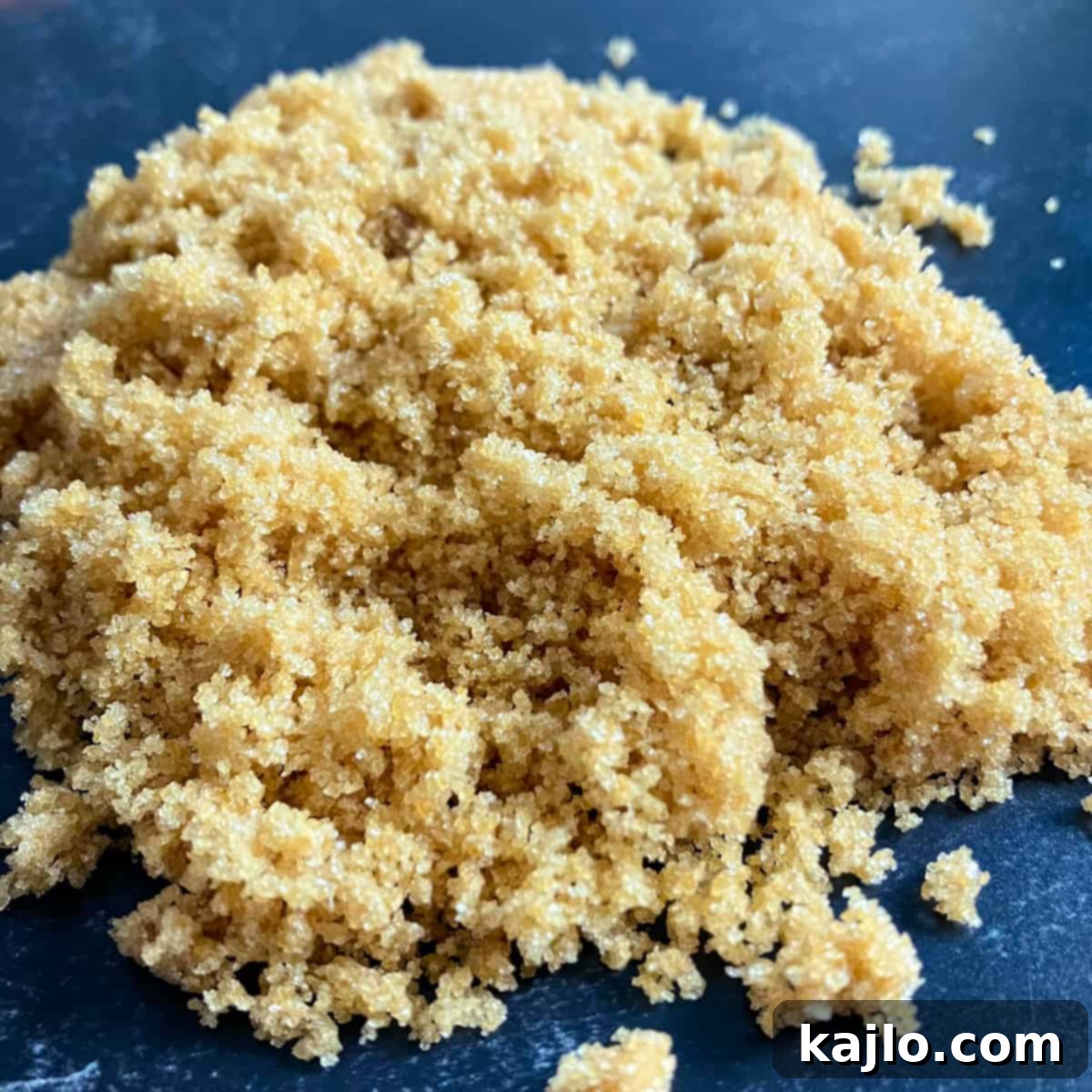
While dark brown sugar has a more intense molasses flavor, it can also be used as a coconut sugar alternative if you prefer a richer taste. Keep in mind that the stronger flavor might be more noticeable in delicate recipes.
Regular Sugar
Commonly known as white sugar, table sugar, or granulated sugar, this is arguably the most accessible and budget-friendly coconut sugar replacement. It’s a staple in nearly every pantry, making it an excellent choice when convenience is key. The main drawback is the absence of coconut sugar’s subtle caramel notes, but for many recipes, particularly those with other strong flavors, this difference is negligible.
Substitution Ratio: 1 cup regular sugar for 1 cup coconut sugar (1:1 ratio).
Its neutral flavor and identical granular texture make it incredibly easy to use without altering the consistency of your dish. For those prioritizing affordability and ease of conversion, white sugar is an unbeatable option.
Honey
Both regular and raw honey offer a unique liquid alternative to coconut sugar. Raw honey undergoes minimal processing, potentially retaining more of its natural enzymes and nutrients, though it’s often pricier. Honey imparts a distinct floral and sweet flavor that can be quite pleasant, but it’s important to remember it’s a liquid sweetener, which will impact the moisture content of your recipe.
Substitution Ratio: ¾ cup honey for 1 cup coconut sugar (3:4 ratio). When using honey, consider reducing other liquids in your recipe by about 1/4 cup for every cup of honey used to maintain the desired consistency.
Maple Syrup
Derived from the sap of maple trees, pure maple syrup is another popular liquid sweetener. It’s often perceived as a “healthier” sugar, but it’s still an added sugar. Maple syrup provides a distinct earthy, woody sweetness that pairs well with many recipes, especially baked goods and breakfast items. Like honey, its liquid form requires adjustments to your recipe.
Substitution Ratio: ¾ cup maple syrup for 1 cup coconut sugar (3:4 ratio). Reduce other liquids in your recipe by approximately 1/4 cup for every cup of maple syrup to prevent your final product from becoming too moist.
For a granulated option, some specialty stores carry maple sugar, which can be substituted 1:1 for coconut sugar and provides a similar flavor profile without the liquid adjustment.
Date Syrup
Date syrup is a natural sweetener crafted simply from dates and water. Its rich, caramel-like flavor makes it an excellent match for coconut sugar, often adding a deeper, more complex sweetness. Due to its intensity and liquid form, a smaller amount is typically needed.
Substitution Ratio: ⅔ cup date syrup for 1 cup coconut sugar (2:3 ratio). As with other liquid sweeteners, you may need to reduce other liquids in your recipe by 2-4 tablespoons per cup of date syrup to achieve the correct texture.
Similar to maple sugar, date sugar is also available and can be used as a 1:1 granulated substitute, providing the lovely flavor of dates without affecting the liquid balance of your recipe.
Agave Nectar
Agave nectar, or agave syrup, is a sweetener extracted from several species of the agave plant. It’s known for being sweeter than sugar, so less is needed. Agave has a relatively neutral flavor, making it versatile for many applications where you don’t want the sweetener to overpower other ingredients. Like coconut sugar, it can sometimes be a more expensive option.
Substitution Ratio: ⅔ cup agave syrup for 1 cup coconut sugar (2:3 ratio). Reduce other liquids in your recipe by 2-4 tablespoons when using agave nectar to maintain proper moisture levels.
Brown Rice Syrup
Brown rice syrup, also known as rice malt syrup, is made by breaking down the starches in brown rice into sugars using enzymes. The liquid is then reduced to create a thick, viscous syrup, similar in consistency to molasses. It has a mild, somewhat nutty flavor and is less sweet than many other syrups.
Substitution Ratio: 1⅓ cups brown rice syrup for 1 cup coconut sugar (4:3 ratio). Given its liquid nature, you will need to adjust other liquids in your recipe, likely by reducing them to account for the added moisture.
Coconut Nectar
Coconut nectar, also called coconut syrup or coconut tree sap, is essentially coconut sugar before all the water has been evaporated. It’s produced by collecting the sap from coconut tree blossoms and then thickening it through evaporation. It has a consistency similar to honey and carries the same buttery caramel flavor as coconut sugar, making it a very natural flavor match.
Substitution Ratio: ¾ cup coconut nectar for 1 cup coconut sugar (3:4 ratio). Be sure to adjust other liquids in your recipe accordingly. It’s important to note that coconut nectar is NOT the same as coconut aminos, which is a savory, salty seasoning.
The main drawbacks of coconut nectar are its higher price and limited availability compared to other sweeteners. Also, converting from a granulated sugar to a liquid sweetener can alter the texture of your baked goods.
Panela (Piloncillo)
Panela is an unrefined, whole cane sugar. It’s known as piloncillo in Mexico, rapadura in Portuguese-speaking countries, and shares similarities with jaggery from India. It has a robust caramel flavor and can be found in solid blocks or granulated form, with the latter being more convenient for recipes.
Substitution Ratio: 1 cup panela for 1 cup coconut sugar (1:1 ratio). Its deep, caramelly flavor makes it an excellent choice for recipes where you want a rich, unrefined sugar taste.
Evaporated Sugar Cane Juice
Often controversially labeled as “evaporated cane juice” instead of “sugar,” this is essentially raw sugar obtained by evaporating water from sugarcane juice. It is less processed than white sugar and retains some of the molasses, giving it a light caramel flavor that works well as a coconut sugar substitute.
Substitution Ratio: 1 cup evaporated cane juice for 1 cup coconut sugar (1:1 ratio). This is a straightforward swap that maintains both sweetness and a hint of the desired caramel undertone.
Date Paste
For those prioritizing whole food ingredients, date paste is an excellent choice. It’s made by blending Medjool or other dates into a thick paste, sometimes with a little water. Using date paste introduces the nutritional benefits of whole fruit, including fiber, which is absent in most refined sugars.
Substitution Ratio: Experiment with 1 cup date paste for 1 cup coconut sugar (1:1 ratio), adjusting based on the paste’s thickness. Be aware that date paste will add moisture and can change the texture of baked goods more significantly than granulated sugars.
Monk Fruit Sweetener
Monk fruit sweetener, or luo han guo, is a popular low-carb, zero-calorie sweetener extracted from a gourd family plant. It’s available in highly concentrated powder or liquid forms, and also commonly blended with erythritol to create 1:1 sugar substitute products that are excellent for baking.
Pure monk fruit extract is incredibly potent, so conversion rates are very different: 2/3 teaspoon monk fruit powder for 1 cup coconut sugar, or 288 drops of monk fruit liquid for 1 cup coconut sugar. However, for ease of use in baking, monk fruit blends (typically with erythritol) can often be substituted 1:1 for coconut sugar. Always check the product packaging for precise conversion details.
Xylitol
Xylitol is a sugar alcohol found naturally in many fruits and vegetables, often extracted from birch trees. It has a low glycemic index and fewer calories than sugar, making it a favorite among those managing blood sugar or seeking weight loss. It’s also known for promoting dental health.
Substitution Ratio: 1 cup xylitol for 1 cup coconut sugar (1:1 ratio). While it measures like sugar, be cautious if you have pets, as xylitol is highly toxic to dogs.
Allulose
Allulose is a “rare sugar” naturally present in small amounts in wheat, figs, raisins, and other foods. It’s gaining popularity as a low-calorie, low-carb sweetener that tastes and browns like sugar without the same metabolic impact. However, it’s not as sweet as regular sugar or coconut sugar.
Substitution Ratio: 1⅓ cups allulose for 1 cup coconut sugar (4:3 ratio). Due to needing a higher volume, it might slightly affect the texture of your recipe, particularly if it’s volume-sensitive.
Tagatose
Tagatose is a low-calorie sugar substitute derived from lactose. It offers a lower glycemic index and is marketed as a 1:1 sugar replacement. However, it’s generally about 90% as sweet as sugar, so your final product might be slightly less sweet if using a direct 1:1 swap.
Substitution Ratio: 1 cup tagatose for 1 cup coconut sugar (1:1 ratio). If you prefer a full sweetness level, you might consider adding a tiny bit more or pairing it with another sweetener.
Erythritol
Erythritol is a sugar alcohol that is about 70% as sweet as sugar. It’s commonly found in 1:1 low-carb baking blends where it’s combined with more potent sweeteners like stevia or monk fruit to match sugar’s sweetness. When used on its own, you’ll need more of it.
Substitution Ratio: 1⅓ cups erythritol for 1 cup coconut sugar (4:3 ratio). Increasing the dry volume of sweetener can sometimes lead to a slightly drier texture or a “cooling” sensation in the mouth, which some people notice.
Sucanat
Sucanat is a brand name for a form of whole cane sugar, meaning “sugar cane natural.” It’s an unrefined sugar that retains all of its natural molasses, similar to panela and muscovado. It has a light brown color and a rich caramel flavor, making it an excellent match for coconut sugar in both taste and texture.
Substitution Ratio: 1 cup Sucanat for 1 cup coconut sugar (1:1 ratio). It’s a fantastic choice for a robust, natural sweetness in baking.
Swerve
Swerve is a popular low-carb, zero-calorie sweetener blend typically made from erythritol, oligosaccharides, and natural flavors. It’s formulated to measure and bake just like sugar, making it a convenient 1:1 substitute for many recipes, especially for those on ketogenic diets.
Substitution Ratio: 1 cup Swerve for 1 cup coconut sugar (1:1 ratio). Swerve is often praised for having no discernible aftertaste, though individual sensitivities can vary. It’s an ideal choice for reducing carbs and calories without compromising on baking performance.
Stevia
Stevia is a natural, zero-calorie sweetener extracted from the leaves of the Stevia rebaudiana plant. Like monk fruit, pure stevia extract is incredibly concentrated. It’s often found in liquid drops, pure powder, or blended with other bulk sweeteners (like erythritol) to create a 1:1 sugar substitute for baking.
For pure stevia extract, the conversion rates are drastically different: ¼ teaspoon stevia powder for 1 cup coconut sugar, or 2 teaspoons stevia liquid for 1 cup coconut sugar. For easier baking, stevia blends that measure 1:1 with sugar are readily available and can be used as a direct substitute. Always consult the product’s packaging for accurate ratios.
Turbinado Sugar (Demerara Sugar)
Turbinado sugar, often labeled as demerara sugar or “raw sugar,” is a partially processed cane sugar. It has large, sparkling crystals and a light golden-brown color, with much of the molasses removed through spinning. Its texture is drier than typical brown sugar, making it more akin to coconut sugar’s granular consistency.
Substitution Ratio: 1 cup turbinado sugar for 1 cup coconut sugar (1:1 ratio). While it offers a mild caramel flavor and similar texture, it tends to be more expensive than regular brown sugar.
Muscovado
Muscovado sugar is a highly aromatic and dark brown sugar with a strong molasses flavor. It’s either unrefined or only partially refined, retaining a significant amount of its natural molasses content, which also gives it a sticky, moist texture. Light muscovado is generally preferred for substituting coconut sugar due to its slightly milder flavor.
Substitution Ratio: 1 cup light muscovado sugar for 1 cup coconut sugar (1:1 ratio). It will impart a richer, more pronounced caramel and toffee note to your recipes compared to coconut sugar.
🏆 Best Natural Substitute for Coconut Sugar
In my opinion, when considering natural and minimally processed options, light brown sugar stands out as the best overall natural substitute for coconut sugar. It delivers a similar flavor profile and appearance at a significantly lower cost and is widely available. From a nutritional standpoint, there are no substantial advantages to choosing coconut sugar over brown sugar.
If your definition of “natural” leans towards whole foods, then date paste is an excellent alternative. Made simply from blended dates, it adds natural sweetness along with fiber and nutrients. However, its moist and dense texture means it’s not suitable for all recipes, particularly those requiring a dry, granular sweetener.
🧁 Coconut Sugar Substitute for Baking
For most baking applications, such as cookies, brownies, or quick breads, a 1:1 granulated substitute is ideal to maintain the recipe’s structure and consistency. Light brown sugar is the undisputed champion here. Its fine granules, moist texture, and delightful caramel flavor closely mirror coconut sugar, ensuring your baked goods turn out just right without any complex adjustments or compromises on taste or appearance. Regular white sugar also works well, especially in recipes where the caramel note isn’t critical.
👉 Coconut Sugar Substitute Keto
For individuals following a ketogenic or low-carb diet, or those simply looking for options with a lower glycemic impact, several excellent keto coconut sugar substitutes are available. These alternatives are typically sugar alcohols or natural extracts that provide sweetness with minimal net carbs or calories. It’s crucial to check the specific brand and blend, as some are more potent than others.
Here are some top keto-friendly coconut sugar substitutes:
- Monk Fruit Sweetener (especially 1:1 blends with erythritol)
- Xylitol
- Allulose
- Tagatose
- Erythritol
- Swerve (a popular erythritol blend)
- Stevia (especially 1:1 blends with erythritol)
When using these, especially pure extracts, pay close attention to the conversion ratios provided by the manufacturer, as their sweetness can vary greatly from sugar.
🥉 Best Coconut Sugar Substitute Overall
Considering taste, texture, availability, and cost, my overall winner for the best coconut sugar substitute is **light brown sugar**. Unless you specifically require a low-calorie or low-carb option, brown sugar offers the most versatile and seamless replacement. It delivers similar flavor, performs excellently in baking, and is consistently more affordable and easier to find than coconut sugar.
💰 Where to buy coconut sugar near me?
While this article focuses on alternatives, you might still want to locate coconut sugar for specific recipes or preferences. In the US, mainstream grocery stores don’t always stock it, but you’re likely to find it at natural food stores like Whole Foods Market, Trader Joe’s, or other specialty health food retailers. For guaranteed availability and convenience, purchasing coconut sugar online is always an option. You can find it here.
📋 Coconut Sugar Nutrition
Understanding the nutritional profile of coconut sugar can help you make informed substitution choices. Here’s a general overview per teaspoon (approximately 4g), based on typical data:
| Nutrient | Coconut sugar per 1 tsp |
|---|---|
| Calories | 15 |
| Total Fat | 0g |
| Saturated Fat | 0g |
| Sodium | 0mg |
| Total Carbohydrates | 4g |
| Fiber | 0g |
| Total Sugar | 4g |
| Net Carbs | 4g |
| Protein | 0g |
| Calcium | 0% DV |
| Iron | 0% DV |
Coconut sugar is naturally low in fat, gluten-free, vegetarian, and vegan. As an added sugar, it contains minimal essential vitamins and minerals, leading it to be sometimes referred to as “empty calories.” It’s not an ideal choice for low-carb or ketogenic diets, especially since many people tend to consume sugar in larger quantities than recommended.
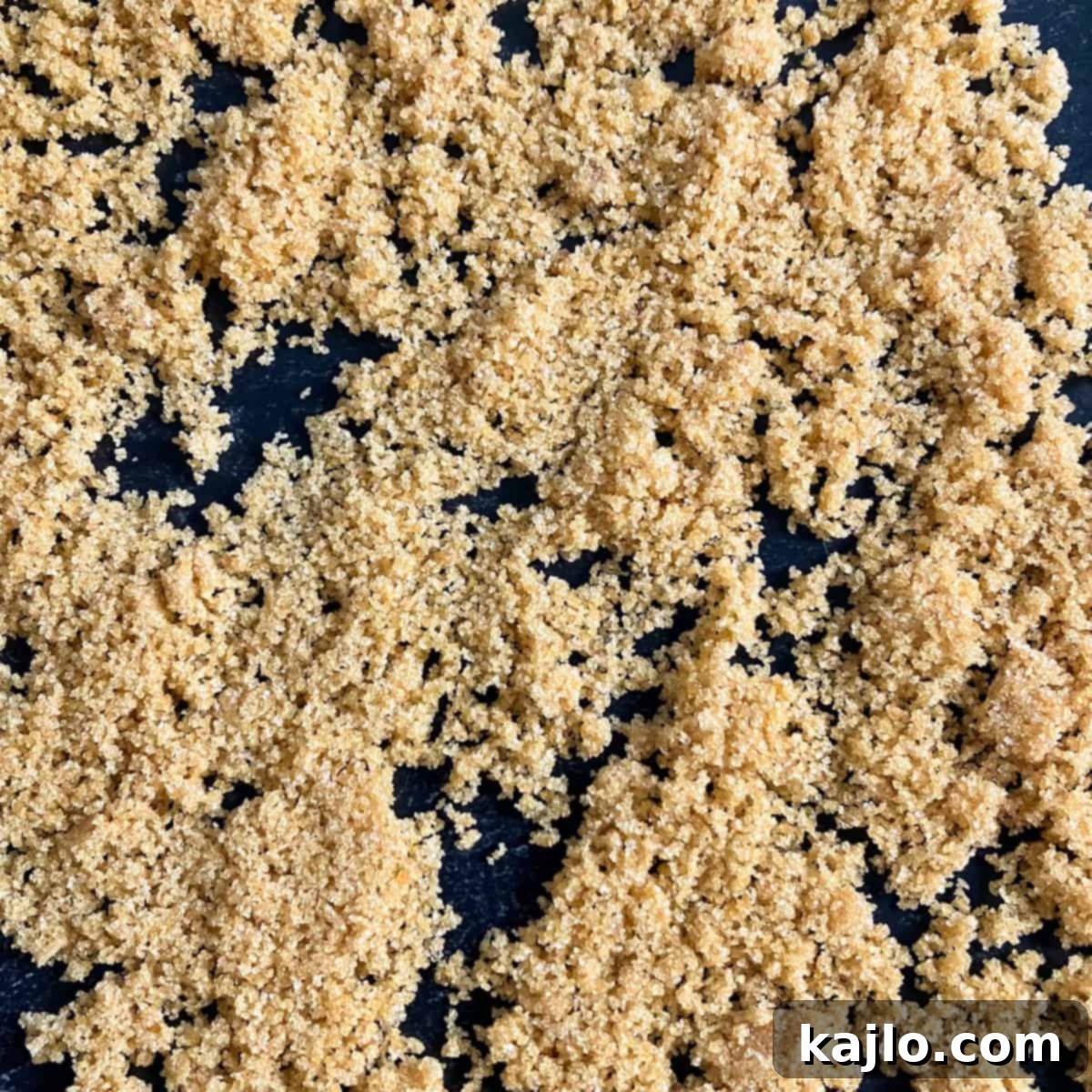
FAQs About Coconut Sugar Substitutes
Can I use coconut sugar instead of white sugar?
Absolutely! You can easily swap granulated white sugar for coconut sugar and vice versa. Use a 1:1 ratio for direct replacement in most recipes. Keep in mind that coconut sugar will impart a slight caramel flavor, which white sugar lacks.
Can you substitute coconut sugar for brown sugar?
Yes, coconut sugar makes an excellent substitute for brown sugar. Their flavor profiles and moist textures are quite similar, making them interchangeable in a 1:1 ratio. The main difference might be a slightly milder caramel note in coconut sugar compared to dark brown sugar.
Coconut sugar vs brown sugar – what’s the difference?
While both coconut sugar and brown sugar share a similar flavor and appearance, their origins differ. Coconut sugar is made from the sap of coconut palm flowers. Brown sugar, on the other hand, is derived from sugarcane or sugar beets and gets its brown color and moist texture from the addition of molasses.
What are some liquid substitutes for coconut sugar?
Several liquid sweeteners can replace coconut sugar, including honey, maple syrup, date syrup, agave nectar, and coconut nectar. When using liquid substitutes, remember that they are not a 1:1 swap for granulated sugar. You’ll typically use less liquid sweetener and may need to adjust other liquid ingredients in your recipe to maintain the correct consistency. Always refer to the specific substitution ratios provided in this guide.
How to make homemade coconut sugar (flavor substitute)?
While you can’t “make” coconut sugar at home, you can create a substitute that mimics its flavor profile. A common trick for brown sugar that works similarly for coconut sugar is to mix 1 cup of white granulated sugar with 2 tablespoons of molasses. This combination provides both the sweetness and the caramel notes found in coconut sugar.
👩🏻🍳 Recipes Using Sugar (and its substitutes!)
Once you’ve mastered the art of substitution, you’ll be able to enjoy a wide variety of sweet treats and dishes. Here are some recipe ideas where you can confidently use coconut sugar or any of its suitable alternatives:
- Air Fryer Sugar Cookies
- Cookie Monster Cookies
- Carrot Candy Recipe
- Sugar Free Strawberry Shortcake (which can also be made with sugar or a substitute)
🧑🏿🍳 Other Recipe Substitutions You Might Need
Expanding your culinary skills often involves learning how to make smart substitutions. Check out these helpful guides for other common recipe swaps:
- Best Applesauce Substitute
- Best Horseradish Substitute
- Corn Flour Substitute
- Best Salsa Substitutes
- Best Nigella Seed Substitutes
Watch How to Make It!

Learn the best coconut sugar substitute, and get 21 coconut sugar alternatives!
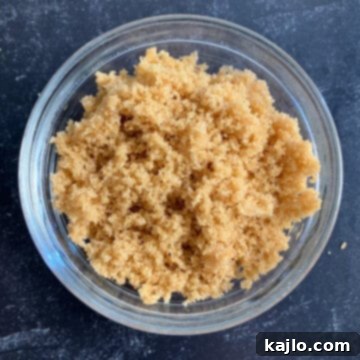
Coconut Sugar Substitute (21 Coconut Sugar Alternatives)
Summer Yule
5 from 1 vote
Print Recipe
Pin Recipe
Ingredients
- 1 cup Light Brown Sugar OR
- 1 cup Regular Sugar OR
- ¾ cup Raw Honey OR
- ¾ cup Maple Syrup OR
- ⅔ cup Date Syrup OR
- ⅔ cup Agave Nectar OR
- 1⅓ cup Brown Rice Syrup OR
- ¾ cup Coconut Nectar OR
- 1 cup Panela (Piloncillo) OR
- 1 cup Evaporated Sugar Cane Juice OR
- 1 cup Date Paste OR
- 1 cup Monk Fruit Sweetener (if using a 1:1 substitute with erythritol) OR
- 1 cup Xylitol OR
- 1⅓ cup Allulose OR
- 1 cup Tagatose OR
- 1⅓ cup Erythritol OR
- 1 cup Sucanat OR
- 1 cup Swerve OR
- 1 cup Stevia (if using a 1:1 substitute with erythritol) OR
- 1 cup Turbinado Sugar (Demerara Sugar) OR
- 1 cup Muscovado
Instructions
- Pick a substitute with the flavor profile and texture you desire. (In my opinion, light brown sugar is the best overall substitute for coconut sugar.)
- Substitute 1 cup of coconut sugar in your recipe with the listed amount of your chosen coconut sugar alternative. (Remember to adjust the amount of other liquids in your recipe if you choose a liquid sweetener.)
Save this Recipe
Notes
nutrition info disclaimer
All recipes on this website may or may not be appropriate for you, depending on your medical needs and personal preferences. Consult with a registered dietitian or your physician if you need help determining the dietary pattern that may be best for you.
The nutrition information is an estimate provided as a courtesy. It will differ depending on the specific brands and ingredients that you use. Calorie information on food labels may be inaccurate, so please don’t sweat the numbers too much.
“To taste” means to your preferences, which may have to be visual to follow food safety rules. Please don’t eat undercooked food x
Nutrition
Carbohydrates: 4g
Added Sugar: 4g
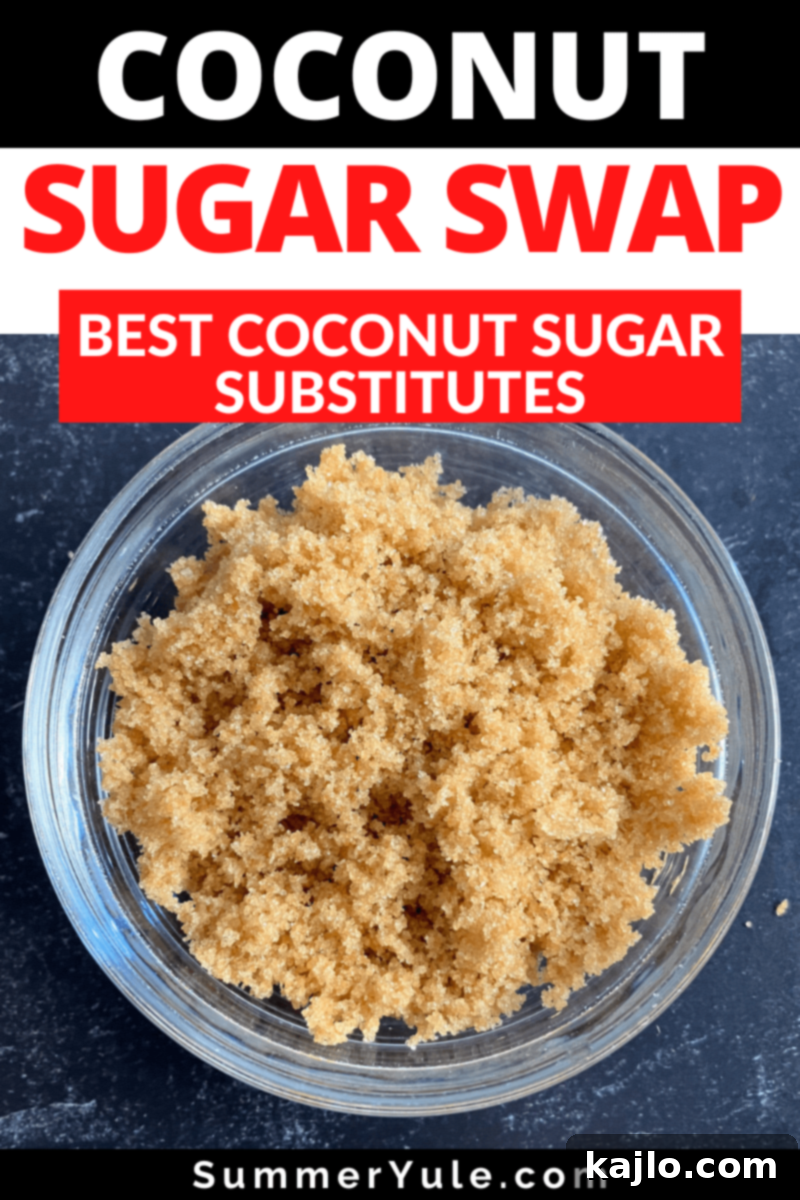
Join our community! Subscribe for all of the latest and greatest recipes, and follow me on Facebook, Pinterest, Instagram, and YouTube!
